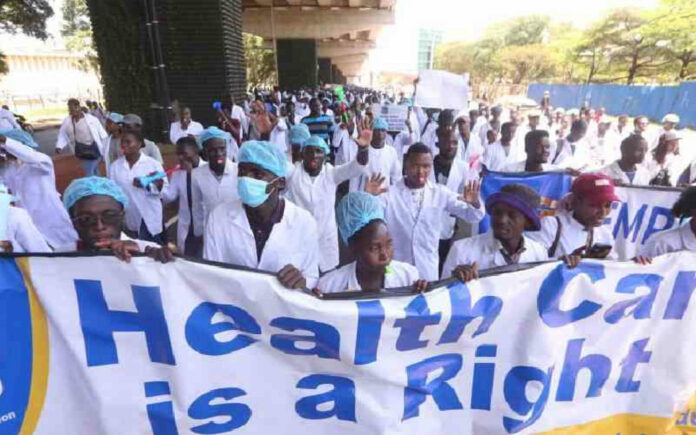The Kenya Medical Practitioners Pharmacists and Dentists Union (KMPDU) has ended its nationwide strike. The strike, which was initiated and primarily promoted as a protest against the government’s refusal to post and properly pay intern doctors, has ended after 56 days.
Ironically, though, the intern doctors whose issues were at the heart of the strike appear to have been left hanging dry, with the KMPDU saying that it had ended the strike without resolving their issues. Instead, the KMPDU said that it would continue to engage the government through talks.
KRA goes after landlords who haven’t ‘raised rent for tenants’ in years
“As we sign, we will continue as we had not agreed on the intern issue and they will not be posted within 60 days as we continue with the talks,” said Dr Davji Bhimji Atellah.
On Monday, the Head of Public Service Felix Koskei had threatened that the Sh. 2.4 billion that had been set aside for the payment of intern doctors would be reallocated elsewhere if the strike did not end.
“The money that was set aside for interns, the Sh. 2.4 billion that is sitting in the account because they have not reported, the more they stay, we shall reallocate that money to intervene on immediate urgent issues like floods and other things,” Koskei had said.
When the government first announced that it had released these funds for the placement of intern doctors in the first week of April, the KMPDU termed the offer as spiteful.
“This was impunity of the highest order, you cannot purport to have released Sh. 2.4 billion for the intern doctors yet you have reduced their salaries by 91 per cent. This is utter contempt. We will not entertain this,” Dr Atellah had said.
He had added that the government is reducing the internship pay for the junior doctors by 91 per cent.
“For them to be paid as per the Salaries and Renumeration Commission (SRC), it means they have gone against the 2017 court order which ordered the implementation of the Collective Bargaining Agreement (CBA). They are in contempt. Ideally, the budget to cover all medical interns was Sh. 4.8 billion and they have reduced the salaries by half,” Dr. Atellah had said.
“There is a need to distinguish these junior doctors from other interns in the public service. Besides working beyond the legal limit of work hours, they endure exposure to life-threatening occupational risks.”









